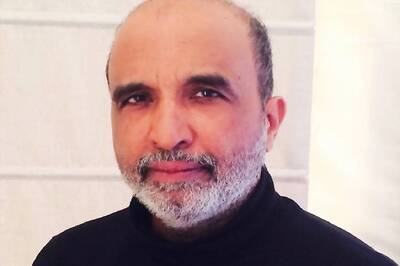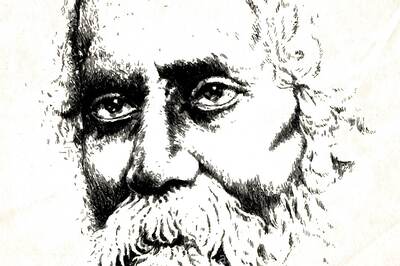
views
Sanaa: Yemeni officials rowed back from President Ali Abdullah Saleh's statement that he would step down within "the coming days", and opponents dismissed the offer on Sunday as yet another delaying tactic to try and stay in power.
Saleh, 69, has defied protests all year against his three-decade rule, reversing repeated pledges to quit. The United States and Saudi Arabia worry that unrest risks tipping the dirt-poor nation into civil war and economic collapse.
In a speech late on Saturday, Saleh said, "I reject power and I will continue to reject it, and I will be leaving power in the coming days."
But Deputy Information Minister Abdu al-Janadi told Reuters Saleh's departure still depends on reaching an agreement, which had yet to be signed.
"He said this to show his commitment to this plan, but there is no plan for a resignation or transfer of powers before we have agreed and signed a deal. That would just plunge the country into chaos or even war," he said.
"He is ready to leave power in days, yes, but whether this happens in the coming days or months will depend on the success of negotiations for a deal."
Protests against Saleh's rule have paralysed Yemen, weakening government control over swathes of the country and fanning fears al Qaeda's regional wing may use the upheaval to expand its foothold near Red Sea oil-shipping routes.
Opponents say speech a ploy
Saleh's speech may be intended to deflect criticism in the U.N. Security Council, which is due to be briefed on Yemen in coming days and could consider a resolution calling on Saleh to implement a power transfer deal. Opponents called it a ploy.
"Saleh is a liar, nothing has changed since his speech," said Mohammed al-Asl, an organiser of protests by opponents of Saleh camped out in a central square in the capital Sanaa.
"We're used to this type of thing now. He just says anything to fool his own people, the world, and everyone. We're not paying any attention to this."
Protesters, camped out in tents in the area in Sanaa now dubbed "Change Square", were going about their usual business of buying food, cooking and chewing wads of qat, a mild leaf stimulant that is common in Yemen.
Saleh's foreign minister met the U.S. ambassador for talks on Sunday, part of what many expect to be a diplomatic push to deflect action by the Security Council.
New pressure has come from an unexpected quarter after the Nobel Peace Prize was awarded on Friday to Tawakul Karman, one of the leading activists who has been on the street at "Change Square" outside Sanaa University since February.
The recognition of a Yemeni democracy activist could refocus global attention on the conflict in Yemen, a state of 23 million people with declining water resources, an imploding economy, separatist and sectarian conflicts and a surging al Qaeda wing.
The wily leader, who came to power in 1978, is under pressure from international allies, street protesters, armed opponents and opposition parties to make good on promises to hand over power. Washington and Riyadh fear Yemen could become a failed state overrun by al Qaeda.
Confusing signals
Saleh has given confusing signals about his intentions since January when protesters first took to the streets to demand reform and end his family's authoritarian grip.
He has already pulled back three times from signing a Gulf Arab peace initiative that would have seen him form an opposition-led cabinet and then hand power to his deputy before early parliamentary and presidential elections.
He left the country for convalescence in Riyadh after surviving an assassination attempt in June, but flew back unannounced in late September.
Diplomats have said they are close to getting international consensus on a Security Council resolution, which could come as early as this week, that would call on the government to implement the Gulf power transfer plan, which has US backing.
A UN envoy, Jamal Beomar, left Yemen to brief the council last week after a fruitless two weeks trying to mediate between Saleh's government and the opposition.
On Sunday, US Ambassador Gerald Feierstein met Yemeni Foreign Minister Abubakr Abdullah Al-Qirbi and discussed the power transfer plan, Yemen's official news agency SABA reported.
"This is all an effort to calm the international community before the briefing before the Security Council," said Asl, the protest organiser.
In Saturday's speech, Saleh repeated his condition that he would not cede power to long-time rivals from the opposition parties, who he says have hijacked the youth activists' protests and aim to subvert the constitutional process.
Saleh's presidential term ends in 2013 and he has said he will not run again, but analysts suspect he would like to outlast the crisis until then. The state of his health is not clear, though, after he was badly burned in the June attack.
"This is new propaganda from Saleh before Yemen is discussed at the Security Council," said Mohammed al-Sabri, an opposition coalition spokesman. "Four months have passed since he said he accepted the Gulf transition deal, so what is stopping him? He doesn't even need a few days to do it."
"It sounds like the same lie, the same speech, over and over again," said student protester Fayza al-Suleimani. "He wants to relieve pressure from the U.N. and quiet all the attention that was raised by Tawakul Karman's Nobel Peace Prize. For us it doesn't change much."
Even as Washington has urged Saleh to accept the power transfer deal, it has relied on Yemen's cooperation in its covert war on militants based there.
A CIA drone killed American-Yemeni cleric Anwar al-Awlaki in Yemen last month in what was seen as a major coup for US President Barack Obama in the battle against al Qaeda.




















Comments
0 comment